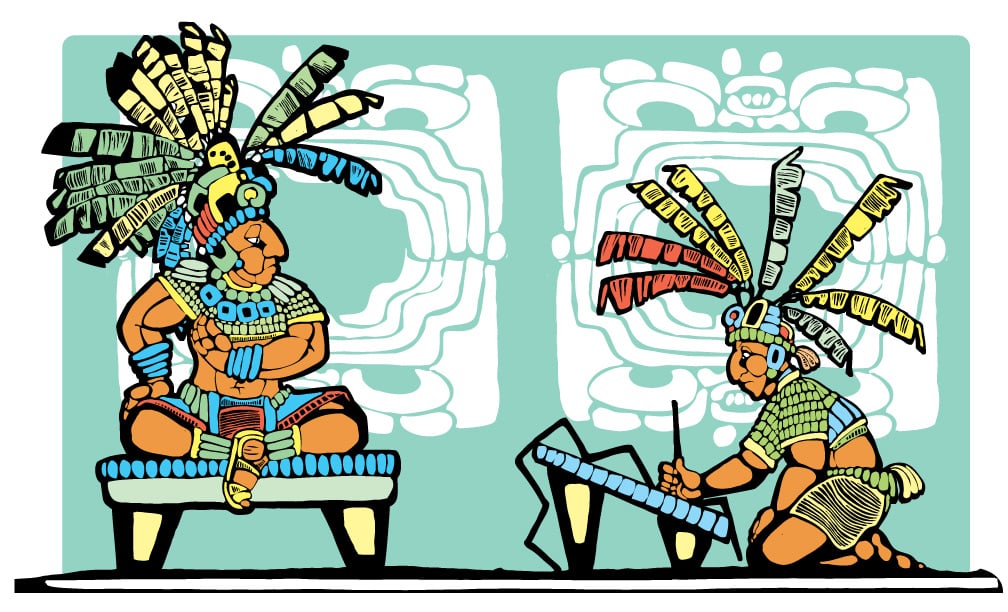Pialli my relatives. This piece is meant expand on the “teacher-student” relationship aspect of the “Protecting Yourself from Spiritual Predators” essay. As mentioned before, the material on this site is based on my direct experience(s) with the teachings I have been blessed to have shared with me. The counterpart to these teachings are the teachers who taught them to me. In the spirit of this site to provide experience and foundation I feel it important to share this personal understanding of distinguishing the teachings from the teacher. The “teacher” label may also apply to music artists or high-profile people we may look to for inspiration.
I know the beautiful feelings and inspiration that comes from reconnecting to your true identity and ancestral inheritance. You’re spirit hums as you realign yourself with these healing lifeways and empowering pieces of our Ancestor’s knowledge. You want to shout out who you really are to the whole world. You want to share all this beautiful “lost” knowledge with your family, friends, and communities. It’s an extremely beautiful state to be in and it is also a state where your mind and heart are very open.
Similarities to a Romantic Relationship
The relationship we develop with a teacher can have parallels with romantic relationships we develop with a significant other. I know that sound kinda funny but if you think about it, your heart is open, inspired, there are growing experiences shared as well as songs or places that you associate with the relationship. In the scenario that you break up with your significant other those songs, places, or similar experiences you shared can bring hurtful feelings and distracting thoughts. It can be a very similar experience with a teacher with who’s guidance you learned songs, language, ceremony, and matured in aspects of reclamation of your authentic Indigenous self.
We are all unique people with unique dynamics and there will always be disagreements on some matters. However, there might be scenarios where the situation is beyond mere “creative differences” and may deal with more serious issues such as sexual predators, violence, or another substantial transgression. It is in those types of scenarios where teacher-student relationships can abruptly break and negatively disrupt one’s healing and growth as a Native man or woman. Depending on the intensity of the situation it can cause you to dislike or avoid hearing sacred Native words you learned, being around certain Native social events, and attending ceremonial occasions, or “throw out the baby with the bath water” as they say.
Teachers are Human too
It is critical in these types of moments to remember not to confuse the teachings for the teacher. It is helpful to remember that many of our teachers especially those in the Chicano or Urban Native-Indigenous community from the 80s and 90s are also in the process of decolonizing themselves and relearning our traditional lifeways.
Despite the knowledge, profoundness, and medicine a teacher may display or help us realize, we need to remember they are still human beings just like us and as such, we should not put them on a pedestal. By this I mean it is ok to honor and show respect to a teacher sharing beautiful knowledge, just don’t have unrealistic expectations that would make you think they are above making human mistakes. Just like the teachings were initially shared with them, they are now sharing the teachings with you, as you in the future will share the teachings with others. It is my agreement that a true teacher will have the humility to acknowledge that, while being in a teaching role, they are also very much students.
Indoctrinated Thinking
During our western unlearning and our Indigenous reclamation we are in a sensitive transitional mode. Those of us who grew up without a father or mother need to be especially mindful as we may unconsciously be inclined, amid our open heart and mind, to unhealthily attach ourselves to these father, mother, big brother, or big sister figure types who guide us. Having an open heart is an important pillar in fully understanding Native teachings but it is important that we also protect our heart and energy from those who may consciously or unconsciously abuse it.
It is also my realization that part of this problem is an affect of our indoctrination to Christianity and Western (linear) thinking. Many of us are psychologically conditioned to the notion of needing a priest or “middle-man” to access beauty or “higher understandings.” Sure there may be times we need to seek the particular medicine and skills of a certain healer but we must not forget that our connection to Creator/Creation and our Ancestors are always accessible to us, that is also something important to remember.
The Teachings Have Their Own Spirit
The teachings, stories, songs, and language have a spirit and medicine in and of themselves. When we have the privilege of being witness to a “magical” occurrence by way of our ceremonies it is common to be in left in a type of amazement. This amazement along with indoctrinated thinking mentioned above can incline us to mistake the person for the medicine when in fact it is really “the Great Mystery” working through someone. Even the teacher or “medicine person” in their perceived state of “advanced knowledge” can lose their humility and forget that they are just the vehicle through which Creator’s gifts flow. Teachers may fall out of grace and become unhealthy retainers for the teachings and medicine. This is when student-teacher “breakups” often happen and unfortunately also results in brothers & sister becoming disenchanted with their Ndgns healing & education and “fall off the road.” Again, please be reminded that the medicine and spirits of the teachings are your inheritance, that connection is always available to you.
Unfortunately I had to learn the hard way. It’s been my experience on more than couple instances that some teachers will use their access to Native resources, people, and knowledge of teachings & spirituality as bait to keep you in their favor, not at all different from being in an abusive relationship. The teacher/leader’s ego is lost in a false sense of self, power, and attention seeking. This type of scenario often results in a cult-ish organization and an unhealthy fanatical following.
After having a “bad break-up” with these “leaders” that I held in high esteem it took me many years to understand what I am sharing with you today. After 8 years, and even some more recent instances, I am still recovering the original enthusiasm I had for these Native traditions as when I first started. I hope this experiential advice keeps you on a good road and prevents any unnecessary discouragement you might encounter on your path of reclaiming your Indigenous self and lifeways.
Tlazocamatic.
Recap:
-
The teachings are not the teacher
-
A true teacher is also a student
-
Keep your mind and heart open but also protect it
-
The teachings have their own medicine and spirit
-
Be mindful of our Western programming that makes us think we need a “middle-man” to access knowledge and beauty.
-
Teachers and Medicine people are human just like you. Don’t put them on a pedestal.

